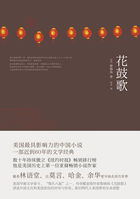Little by little the pace quickens. It becomes a trot. The industrial trot breaks into a canter, the canter in turn grows into the headlong gallop of a perfect steeplechase of industry, commercial credit, and speculation, which finally, after break-neck leaps, ends where it began -- in the ditch of a crisis. And so over and over again. We have now, since the year 1825, gone through this five times, and at the present moment (1877) we are going through it for the sixth time. And the character of these crises is so clearly defined that Fourier hit all of them off when he described the first as crise plethorique , a crisis from plethora.
In these crises, the contradiction between socialised production and capitalist appropriation ends in a violent explosion. The circulation of commodities is, for the time being, stopped. Money, the means of circulation, becomes a hindrance to circulation. All the laws of production and circulation of commodities are turned upside down. The economic collision has reached its apogee. The mode of production is in rebellion against the mode of exchange , the productive forces are in rebellion against the mode of production which they have outgrown.
The fact that the socialised organisation of production within the factory has developed so far that it has become incompatible with the anarchy of production in society, which exists side by side with and dominates it, is brought home to the capitalists themselves by the violent concentration of capital that occurs during crises, through the ruin of many large, and a still greater number of small, capitalists. The whole mechanism of the capitalist mode of production breaks down under the pressure of the productive forces, its own creations. It is no longer able to turn all this mass of means of production into capital. They lie fallow, and for that very reason the industrial reserve army must also lie fallow. Means of production, means of subsistence, available labourers, all the elements of production and of general wealth, are present in abundance. But "abundance becomes the source of distress and want" (Fourier), because it is the very thing that prevents the transformation of the means of production and subsistence into capital. For in capitalistic society the means of production can only function when they have undergone a preliminary transformation into capital, into the means of exploiting human labour-power. The necessity of this transformation into capital of the means of production and subsistence stands like a ghost between these and the workers. It alone prevents the coming together of the material and personal levers of production; it alone forbids the means of production to function, the workers to work and live.
On the one hand, therefore, the capitalistic mode of production stands convicted of its own incapacity to further direct these productive forces.
On the other, these productive forces themselves, with increasing energy, press forward to the removal of the existing contradiction, to the abolition of their quality as capital, to the practical recognition of their character as social productive forces.
This rebellion of the productive forces, as they grow more and more powerful, against their quality as capital, this stronger and stronger command that their social character shall be recognised, forces the capitalist class itself to treat them more and more as social productive forces, so far as this is possible under capitalist conditions. The period of industrial high pressure, with its unbounded inflation of credit, not less than the crash itself, by the collapse of great capitalist establishments, tends to bring about that form of the socialisation of great masses of means of production which we meet with in the different kinds of joint-stock companies. Many of these means of production and of communication are, from the outset, so colossal that, like the railways, they exclude all other forms of capitalistic exploitation. At a further stage of evolution this form also becomes insufficient: the official representative of capitalist society -- the state -- will ultimately have to *10 undertake the direction of production. This necessity for conversion into state property is felt first in the great institutions for intercourse and communication -- the post office, the telegraphs, the railways.
If the crises demonstrate the incapacity of the bourgeoisie for managing any longer modern productive forces, the transformation of the great establishments for production and distribution into joint-stock companies and state property shows how unnecessary the bourgeoisie are for that purpose.
All the social functions of the capitalist are now performed by salaried employees. The capitalist has no further social function than that of pocketing dividends, tearing off coupons, and gambling on the Stock Exchange, where the different capitalists despoil one another of their capital. At first the capitalist mode of production forces out the workers. Now it forces out the capitalists, and reduces them, just as it reduced the workers, to the ranks of the surplus population, although not immediately into those of the industrial reserve army.















